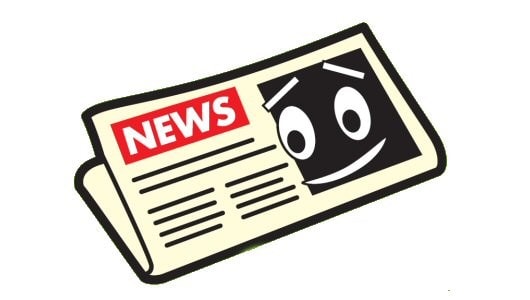New Press Law: Strictly prohibiting the attribution of crimes without a court verdict
This is a provision of the amended Press Law that will take effect from January 1, 2016. This provision specifies a principle of the 2013 Constitution, the principle of presumption of innocence, protection of civil rights and human rights.
In practice, through the development process, the Vietnamese press has also made many strides in eliminating the "language" that attributes crimes. For example, in the past, many newspapers when reporting on crimes often called them "he", "that person", or "name", but now, with the spirit of the 2013 Constitution and the principle of presumption of innocence in previous constitutions and laws, newspapers have shifted to calling people suspected of committing crimes, detained, or imprisoned "suspects" or "criminals".
Previously, in an interview with a reporter about the publication of sketches of suspects and suspects in newspapers, Blogger Hieu Minh, a former IT expert of the World Bank, shared: “I have lived abroad for quite a long time, I am very surprised by the way the Vietnamese press often accuses instead of the court. That is a completely bad way, until recently the press has made a lot of improvements in the way it calls people suspects and suspects. Those are words that the press often uses when the court has not yet reached a conclusion, showing a progress that we can all clearly see.”
Mr. Hieu Minh added: “In foreign countries, people respect privacy very much. If the person who posts that information is sued, it is very dangerous. When attending a court session, people often draw with a pencil, and then newspapers use that drawing to publish it. Except for controversial cases, which require agreement from all parties, live television images are only shown. If there is no agreement, it is absolutely not allowed.”
 |
| Illustration photo |
Talking about this issue from the perspective of a legal expert, Lawyer Pham Cong Ut, Pham Nghiem Law Office (Ho Chi Minh City Bar Association) said: "When we mention compliance with the Constitution, in this case and other similar cases when dealing with suspects, we must comply with Article 31 of the Constitution: "The accused is considered innocent until proven guilty according to the legal procedure and there is a verdict of conviction by the Court that has come into legal effect". This Constitutional Article has also been specified into legal regulations in the 2015 Penal Code and the 2015 Criminal Procedure Code".
Article 9. Prohibited acts 1. Posting or broadcasting information against the Socialist Republic of Vietnam with the following content: a) Distorting, defaming, and denying the people's government; b) Fabricating and causing confusion among the people; c) Psychological warfare. 2. Post and broadcast information with the following content: a) Causing division among the people, between the people and the people's government, the people's armed forces, political organizations, and socio-political organizations; b) Causing hatred, discrimination, division, ethnic secession, and violating the rights of equality in the community of Vietnamese ethnic groups; c) Causing division between religious people and non-religious people, between people of different religions, between religious followers and the people's government, political organizations, and socio-political organizations; offending religious beliefs; d) Undermining the implementation of international solidarity policies. 3. Posting or broadcasting information with content that incites war against the independence, sovereignty and territorial integrity of the Socialist Republic of Vietnam. 4. Distorting history; denying revolutionary achievements; insulting the nation and national heroes. 5. Disclosing information classified as state secrets, personal privacy secrets and other secrets as prescribed by law. 6. Information promoting bad customs, superstitions, and heresies; information about mystical stories that cause confusion in society, negatively affecting social order, security, and community health. 7. Inciting violence; promoting depraved lifestyles; meticulously describing obscene acts and criminal acts; information inconsistent with Vietnamese customs and traditions. 8. Providing false information, distorting, slandering, or insulting the reputation of an agency, organization, or the honor and dignity of an individual; making accusations without a court verdict. 9. Information affecting the normal physical and mental development of children. 10. Printing, publishing, transmitting, broadcasting press products, press works, information content in press works that have been suspended from publication, recalled, confiscated, banned from circulation, removed, destroyed, or information content that has been corrected by the press agency. 11. Obstructing the printing, distribution, transmission, and broadcasting of legal journalistic products and information products to the public. 12. Threatening, intimidating the life, insulting the honor and dignity of journalists and reporters; destroying, seizing equipment and documents, and preventing journalists and reporters from performing their professional activities in accordance with the law. 13. Post and broadcast on information products of a journalistic nature specified in clauses 1, 2, 3, 4, 5, 6, 7, 8, 9 and 10 of this Article. |
According to Infonet
| RELATED NEWS |
|---|






